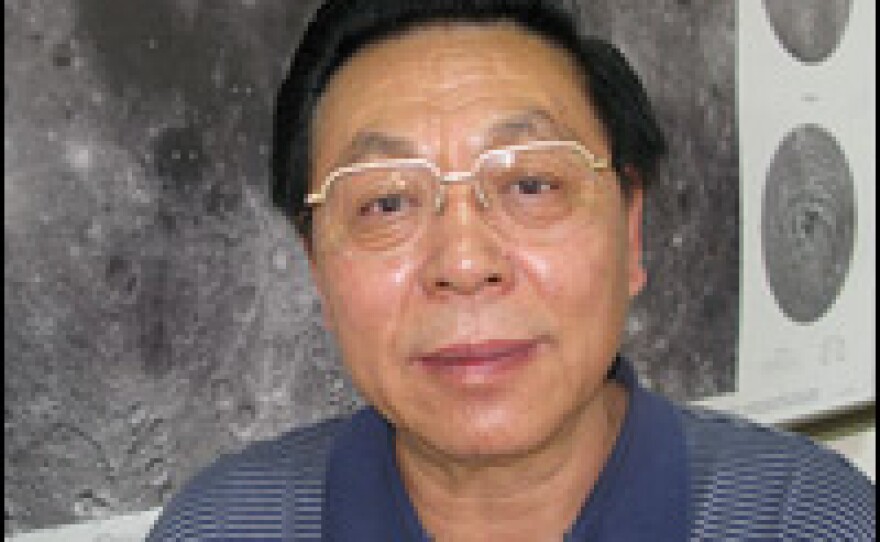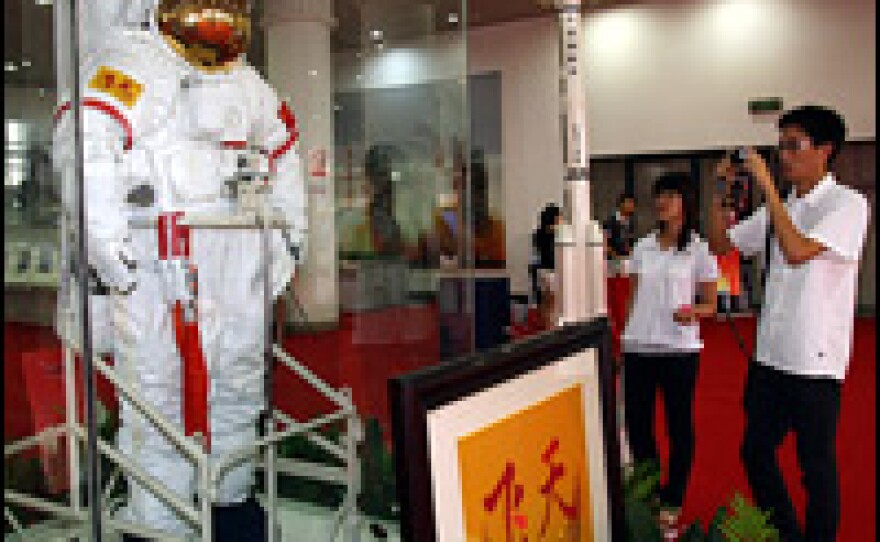
In the last century, space exploration was dominated by the superpowers and developed nations. This century, developing nations, particularly in Asia, have begun rolling out ambitious space programs.
Chief among them is China, which in 2003 became the third country after the United States and the Soviet Union to put a human in space. China may be a latecomer to the field, but it has big plans.
China completed the first phase of its Lunar Exploration Program two years ago when it successfully launched the Chang'e 1 lunar orbiter. Beginning next year, China will launch two spacecraft that will dock to form a small space lab.
China plans to make its first unmanned mission to the moon's surface in about three years.
"We will achieve a moon landing," says Ouyang Ziyuan, the lead scientist with China's Lunar Exploration Program. "We plan to have a landing module and a moon rover jointly explore the moon. The moon rover will be China's most advanced robot so far."
Problems To Solve
No date has been set for putting Chinese astronauts on the moon. Chinese scientists predict that might not happen for another 10 or 20 years.
First, China has to solve problems of propulsion, communication and automation that the U.S. figured out years ago.
Beijing University space expert Jiao Weixin points out, for example, that the Saturn V rocket that lifted the Apollo 11 into orbit could carry a payload of more than 120 tons. By contrast, China's next-generation Long March 5 rocket will only be able to carry about 25 tons.
"This rocket of ours won't be in use until around 2017," Jiao says. "That means that after half a century, our rocket's lifting capacity will barely equal the spare change from that of the American rocket. So in the near term, we won't be giving the U.S. any competition."
But China's National Space Administration has announced that by midcentury, China could begin deep space exploration, including an eventual mission to Mars.
Energy Needs
Ouyang says the aim of China's space program is clear: to advance the country's economic and scientific development. He says the Chinese military's role in the space program has been minor. Still, that role has worried some foreign countries, especially after China conducted an anti-satellite missile test two years ago.
But Ouyang says much has changed since America's Apollo missions.
"This is different from the first high tide of space exploration," he says. "That was a struggle for hegemony, based on the needs of the Cold War. But now, countries are exploring the moon because they believe it can be exploited and used to support the Earth's development."
Ouyang advocates eventually mining the moon for minerals such as titanium and for potential nuclear fuels such as helium-3. He says that the moon holds about 1 million tons of helium-3.
"We could meet the whole world's energy needs with a hundred tons of helium-3 a year. That means we could supply the Earth with enough energy for 10,000 years," Ouyang says.
Copyright 2022 NPR. To see more, visit https://www.npr.org. 9(MDAzMjM2NDYzMDEyMzc1Njk5NjAxNzY3OQ001))







